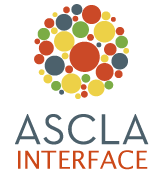By Mary Kearns-Kaplan, Adult Outreach Services Coordinator,
NJ State Library Talking Book & Braille Center.
mkaplan@njstatelib.org
New Jersey is home to over 300 public libraries. Garden State residents are fortunate to have so many public libraries, many located in the heart of our hundreds of boroughs and municipalities. The New Jersey State Library Talking Book & Braille Center (TBBC) has been working with public libraries on several projects, including the unique Braille and Audio Reading Download (BARD) Pilot Project. TBBC is providing national leadership to ensure that our members get what they need to read.
Before we talk about the BARD Pilot Project, here is some background information on TBBC. TBBC is a regional library of the National Library Service for the Blind and Physically Handicapped (NLS) at the U.S. Library of Congress and a division of the New Jersey State Library. We serve children, teens, and adults in New Jersey who have difficulty reading standard print or holding a book because of a physical impairment, a reading disability or a visual impairment. TBBC offers its members the no-cost NLS service which includes:
- Postage-free home delivery of audiobooks, audio magazines, and Braille.
- Long-term loan of the NLS accessible digital talking book machine.
- Access to the BARD site from NLS where our members can download materials.
- BARD Mobile app for smartphones and tablets.
BARD is a powerhouse that provides our members free access to over 50,000 audiobooks, over 40 audio magazines and over 12,000 Braille files for downloading. The downloaded audio materials can be enjoyed on the NLS digital talking book machine or through BARD Mobile.
One day, we said to ourselves: many of NJ’s public libraries help patrons use iPads, Nooks, Kindles, etc. Why not offer help with BARD downloading?
Here is the need: nearly two-thirds of the BARD titles are available exclusively on BARD and are not produced on digital cartridge for mailing. This means our members dependent only on the mail service do not have access to many titles recorded by NLS. In addition, many of our members need help with BARD downloading, particularly those without computers or for whom the downloading process is daunting.
TBBC is providing national leadership and bridging this divide through the BARD Pilot Project. This project is a partnership with the NLS. TBBC members are invited into their public libraries to receive assistance with BARD downloading. TBBC is the only library in the NLS regional system to offer this service. 20% of New Jersey public libraries are now participating. Public librarians and staff help TBBC members download books from BARD onto a flash drive that can be played on the NLS digital talking book machine.
Maria Baratta, former Assistant Director of TBBC, worked with NLS to carefully design this pilot. Here are the parameters:
- Before a public library can join the BARD Pilot, the library must have an institutional account with TBBC.
- All staff at public libraries involved in the BARD Pilot project are required to receive training from TBBC on the copyright restrictions of this program, eligibility criteria, application process, and how to download from BARD.
- Each library staff member creates a BARD account under the library’s larger institutional account.
- Once staff is trained and comfortable, TBBC mails its members in the service area of the library to inform them that this assistance is available.
- TBBC members are required to show proof of membership at the library before receiving any BARD books. They must bring a NLS book card or a TBBC library card to the library to prove membership. If a member cannot travel to the library, a family member or friend can show the proof of membership.
The pilot project was implemented in 2012 and has been successful. As of March 9th, 26,579 books have been downloaded by libraries for TBBC members.
TBBC members gain twofold with the BARD Pilot Project. Not only are members able to access more books, but their lives are enriched by being exposed to the wealth of services and programs offered at New Jersey’s libraries. Through this pilot, we hope to convince the NLS to allow public libraries nationally to have access to BARD to provide this same service.
